Archive of Biographical Writings in Medieval and Early Modern Iberia (2020-)
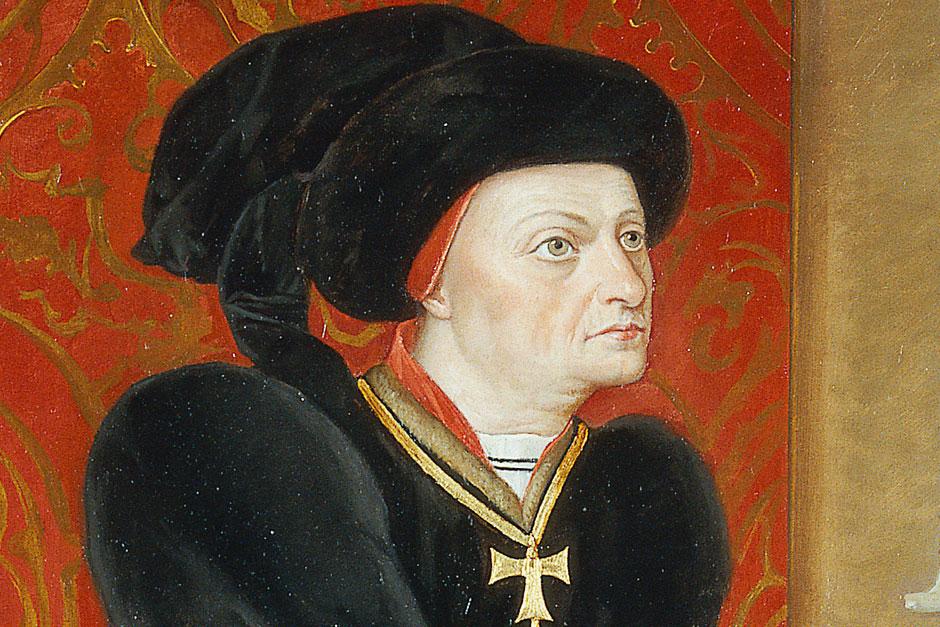
The Archive of Biographical Writings in Medieval and Early Modern Iberia (ArchBio) offers an experimental and evolving platform dedicated to the exploration of life narratives produced in the Iberian Peninsula between 1400 and 1600. Through an interactive prosopographical database, ArchBio connects biographers, their works, and subjects, along with translators and translations, presenting an extensive, open access collection that reveals the richness of historical lives. This dynamic repository invites scholars and enthusiasts alike to delve into the intricacies of Iberian biographical heritage, uncovering stories that shaped the fabric of the past. Presently, Archbio provides access to full texts of few seminal works: Generaciones y Semblanzas by Fernán Pérez de Guzmán, Claros varones de Castilla by Fernando del Pulgar, and Libro de las virtuosas e claras mugeres by Alvaro de Luna. In our “Read text” section, users can navigate two distinct tabs for each work: one features the transcription from modern edition (normally, the first copyright free), while the other offers a preliminary encoding in XML-TEI, enhancing the interactive experience and research utility of our texts.
From Minorca to Florida A Digital Archive of Diaspora and Memory in St. Augustine (2025)
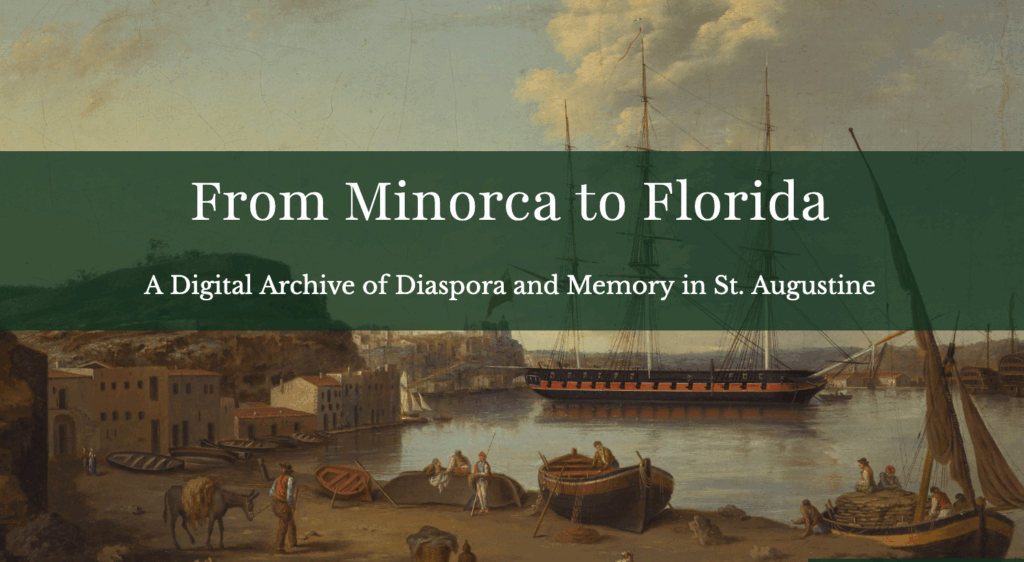 From Minorca to Florida is a digital humanities initiative in its very early and exploratory stages. The project seeks to gather, preserve, and explore the archival traces of a Mediterranean migration to colonial Florida in the 18th century. In 1768, more than 1,400 Mediterranean settlers (Minorcans, Greeks, Corsicans) were recruited by Andrew Turnbull to establish a colony in New Smyrna (FL). Instead of the promised prosperity, they endured forced labor. In 1777, they petitioned for refuge and walked to St. Augustine. Nowadays there is still a large community of Minorcan descendants in St Augustine (see The Minorcan Studies Project). This project will situate the emphasis in documenting and generating data, from archives and overlooked materials scattered across archives in Florida, the US, and Spain. In 2027, Saint Augustine will celebrate the 250 years of the Minorcan arrival.
From Minorca to Florida is a digital humanities initiative in its very early and exploratory stages. The project seeks to gather, preserve, and explore the archival traces of a Mediterranean migration to colonial Florida in the 18th century. In 1768, more than 1,400 Mediterranean settlers (Minorcans, Greeks, Corsicans) were recruited by Andrew Turnbull to establish a colony in New Smyrna (FL). Instead of the promised prosperity, they endured forced labor. In 1777, they petitioned for refuge and walked to St. Augustine. Nowadays there is still a large community of Minorcan descendants in St Augustine (see The Minorcan Studies Project). This project will situate the emphasis in documenting and generating data, from archives and overlooked materials scattered across archives in Florida, the US, and Spain. In 2027, Saint Augustine will celebrate the 250 years of the Minorcan arrival.
Soeldad Amena. Edición crítica y digital de la obra poética de Garcilaso de la Vega (2024)
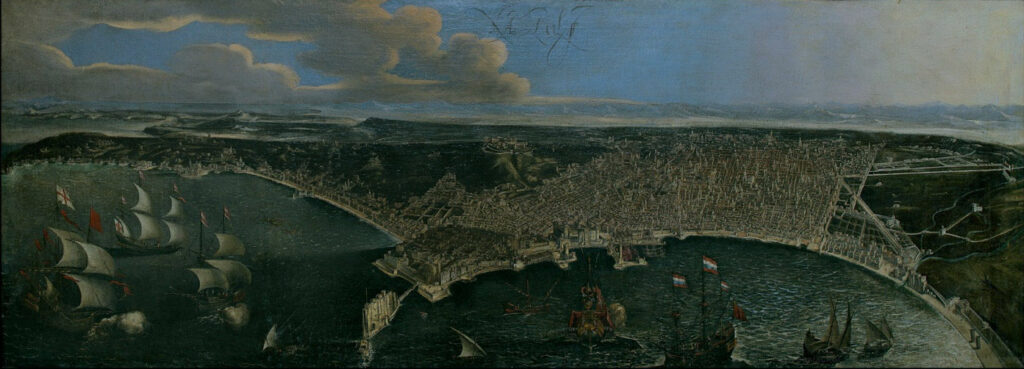 The Soledad Amena project is a critical and digital edition of the poetic works of Garcilaso de la Vega, directed by Eugenia Fosalba and hosted by the Pronapoli project. It focuses on Garcilaso’s Horacian influences, specifically in his Latin and Castilian works. The edition incorporates recent manuscript discoveries, providing annotated critical texts with digital tools like TEI encoding. It includes Garcilaso’s well-known Égloga II, Ode ad florem Gnidi, and five Latin odes, offering scholarly apparatus, translations, and contextual notes. All technical documentation and the XML-TEI encoding have been uploaded in our GitHub repo.
The Soledad Amena project is a critical and digital edition of the poetic works of Garcilaso de la Vega, directed by Eugenia Fosalba and hosted by the Pronapoli project. It focuses on Garcilaso’s Horacian influences, specifically in his Latin and Castilian works. The edition incorporates recent manuscript discoveries, providing annotated critical texts with digital tools like TEI encoding. It includes Garcilaso’s well-known Égloga II, Ode ad florem Gnidi, and five Latin odes, offering scholarly apparatus, translations, and contextual notes. All technical documentation and the XML-TEI encoding have been uploaded in our GitHub repo.
TTHub. Text Technologies Hub. Recursos sobre tecnologías y edición digital
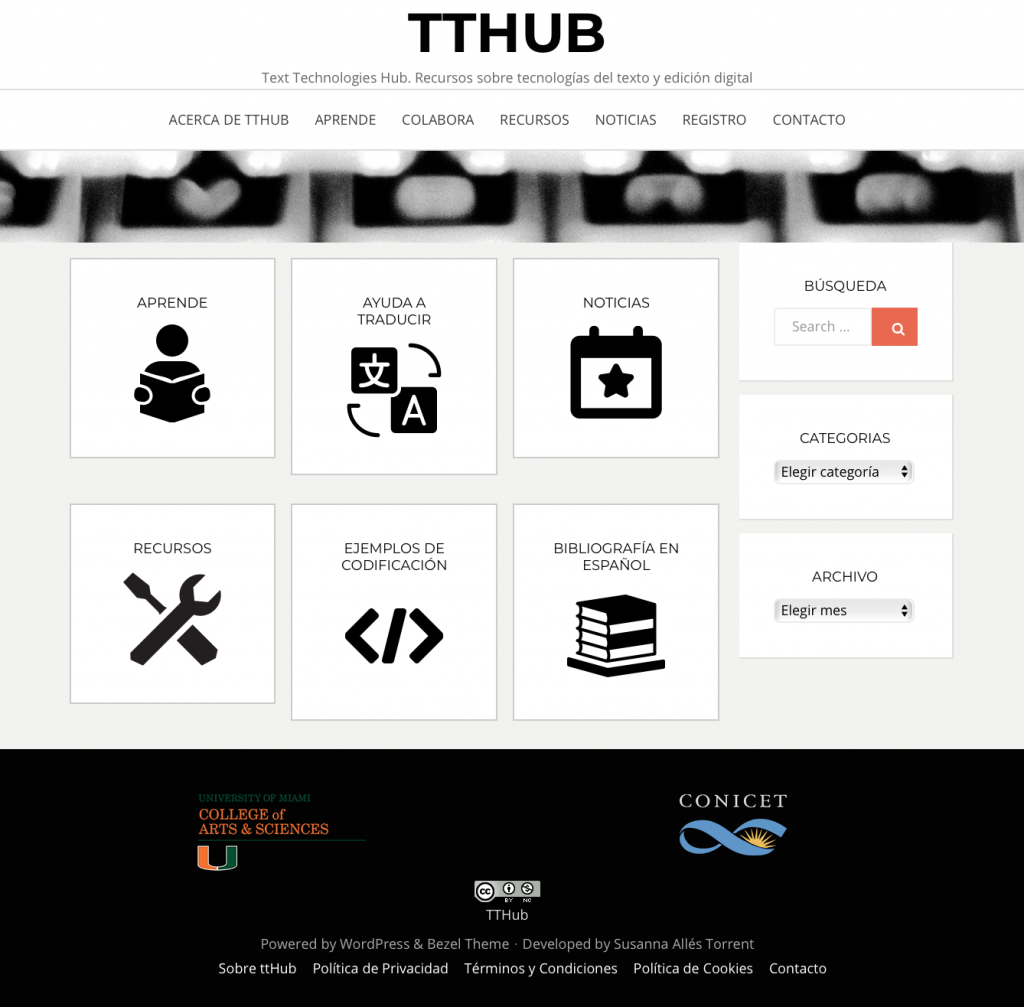
TTHub is a work in progress that gathers teaching materials in Spanish and multiple resources devoted to digital editing and in general to text technologies. The site hosts several online tutorials in the section “Aprende” that can be accessed online or be downloaded in PDF from the academic repository Zenodo “TEI en español” . TTHub is the first platforms offering materials to learn the Text Encoding Initiative in Spanish and it is already widely used by the Spanish Speaking community.
Alfonso de Palencia Digital (forth.)

This project gathers materials of different nature regarding Alfonso de Palencia (1423-1492), a Spanish historian, grammarian, and translator active under the Catholic kings. It also foresees a digital edition of his works, specially of his translations (Plutarch, Flavius Josephus, Domenico Cavalca) and the lexicographical works (Universal vocabulario en latín y en romance, y De Synonymis).
Prolope. Grupo de Investigación sobre Lope de Vega
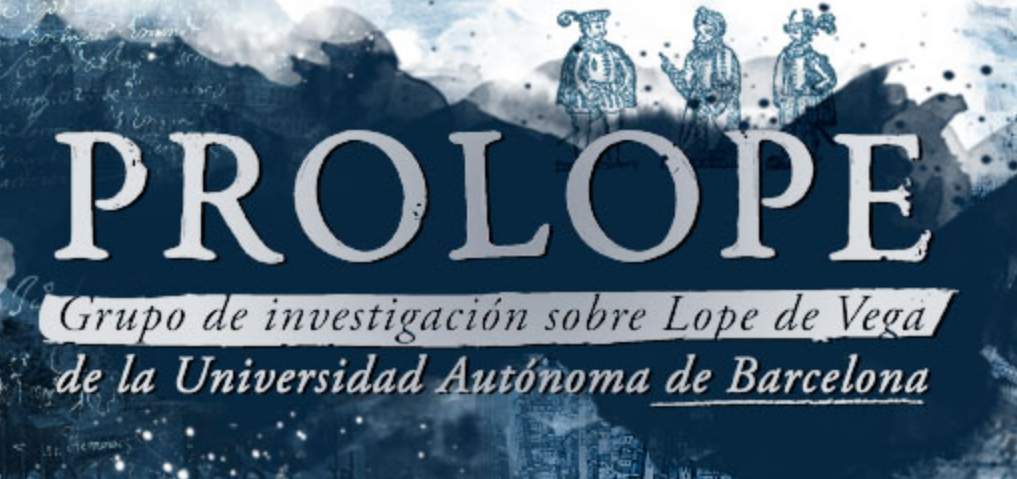
PROLOPE is a research group, founded in 1989 at the Universitat Autònoma de Barcelona by the missed Alberto Blecua, and now coordinated by Ramón Valdés. Among its main aim is to accomplish the critical edition of Lope de Vega’s complete theater (more than 400 plays) both in print and in digital form. We are, at this moment, preparing the XML-TEI markup of some plays and conceiving its digital presentation and infrastructure.
Pronapoli. Garcilaso de la Vega en Italia. Estancia en Nápoles

Pronapoli is coordinated by Eugenia Fosalba at the University of Girona. The project offers a set of materials regarding Garcilaso de la Vega’s stay in Naples from 1532 to 1536. The group collects information concerning authors that Garcilaso might have acquainted, and academies and gatherings he had attended. Since I have joined the group, I am helping with the conception of a future digital edition of the textual sources, and contributing to customize the CMS (WordPress) performance.
Ed. Minimal Editions
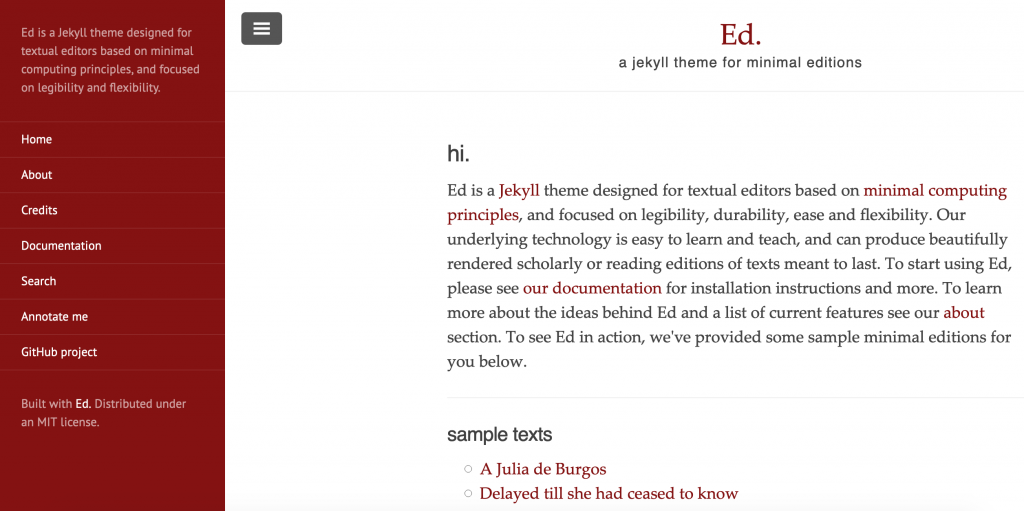
With a group of great scholars we created some years ago a Jekyll theme called Ed, designed for minimal scholarly editions. The project is based on the principles of Minimal Computing philosophy. I have used the theme with my students to create some minimal editions: Minilazarillo project and El Gaucho Martín Fierro. Edición mínima, but also as a general template for my courses: MLL 774 Digital Humanities Practicum, Fall 2018
Digital Narratives of COVID-19
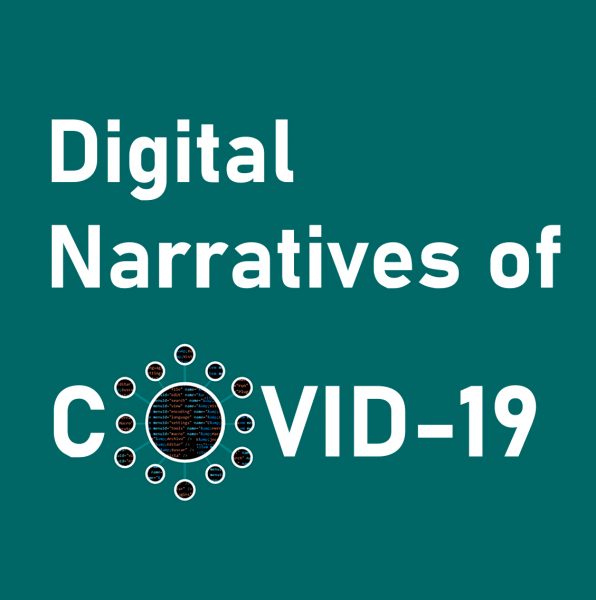
This project explores the social-digital narrative behind the massive digital data about COVID-19 from a humanistic and a bilingual perspective, bringing together a community of scholars and students from the University of Miami (USA) and CONICET (Argentina). We analyze data from growing crowdsourced resources, especially from social media (Twitter), focusing on English and Spanish data within the area of South Florida.